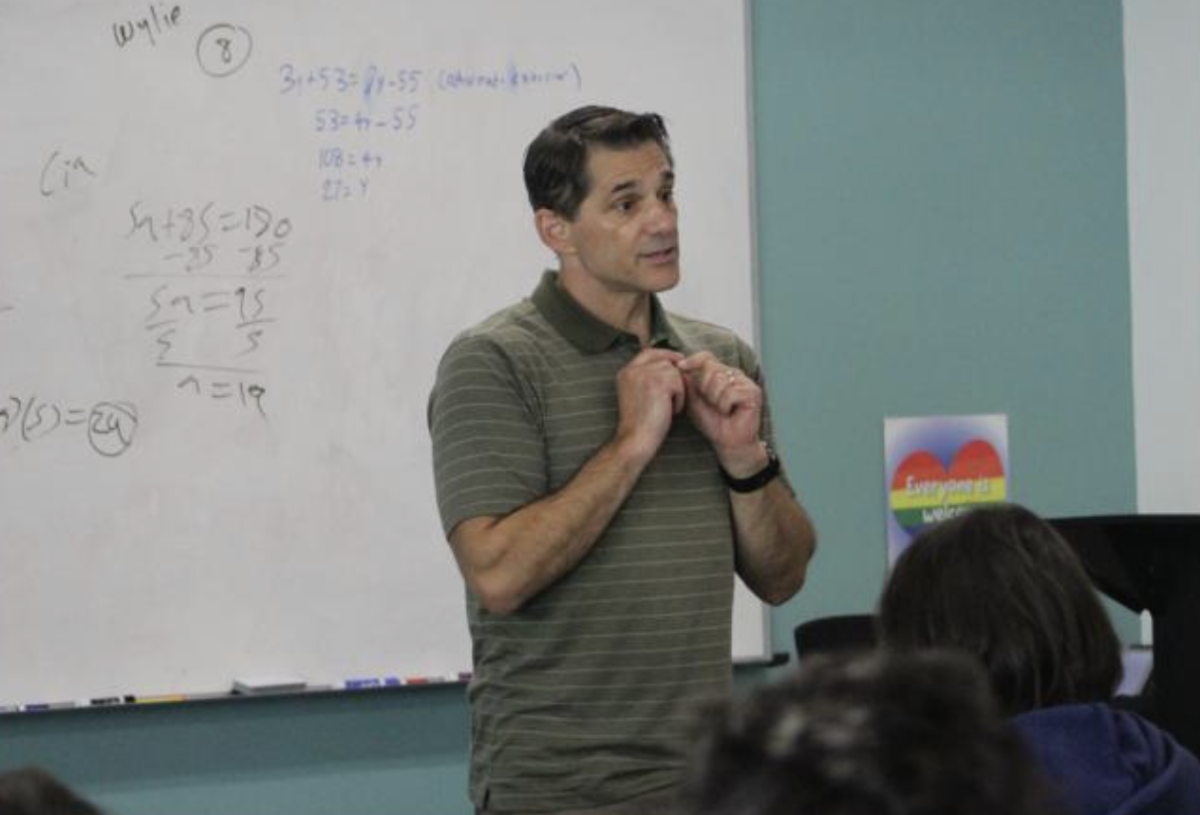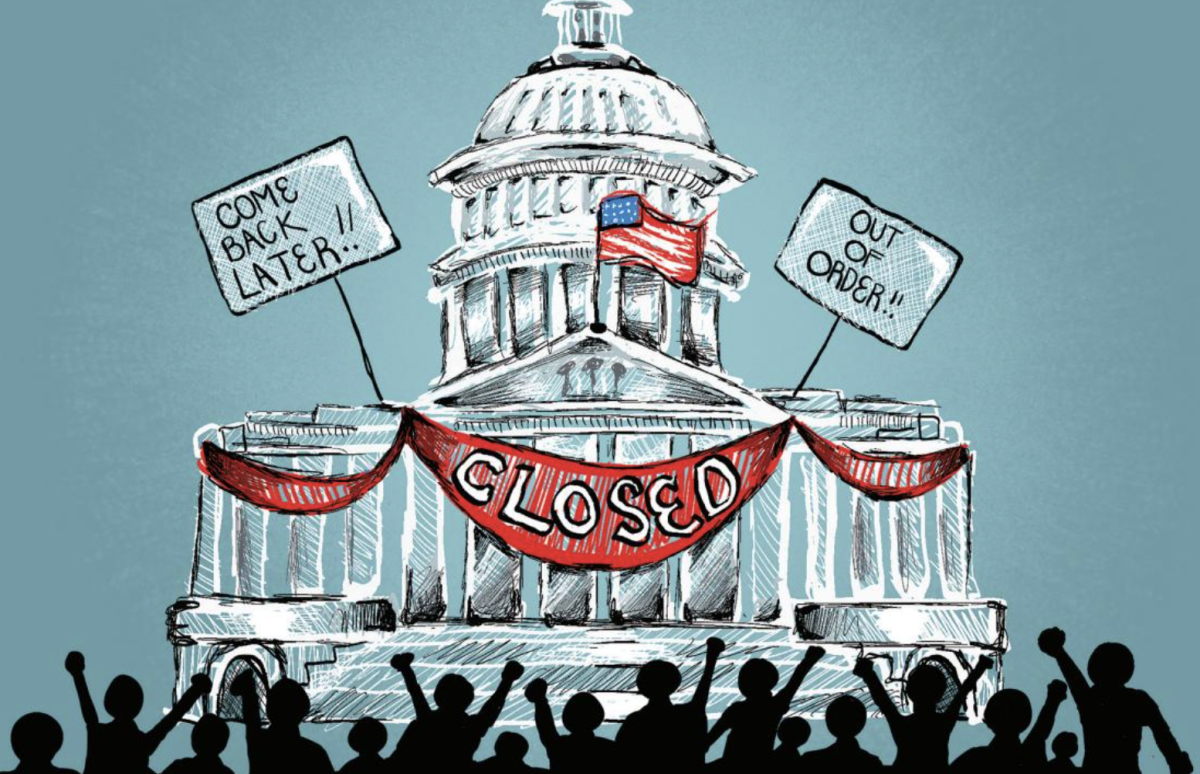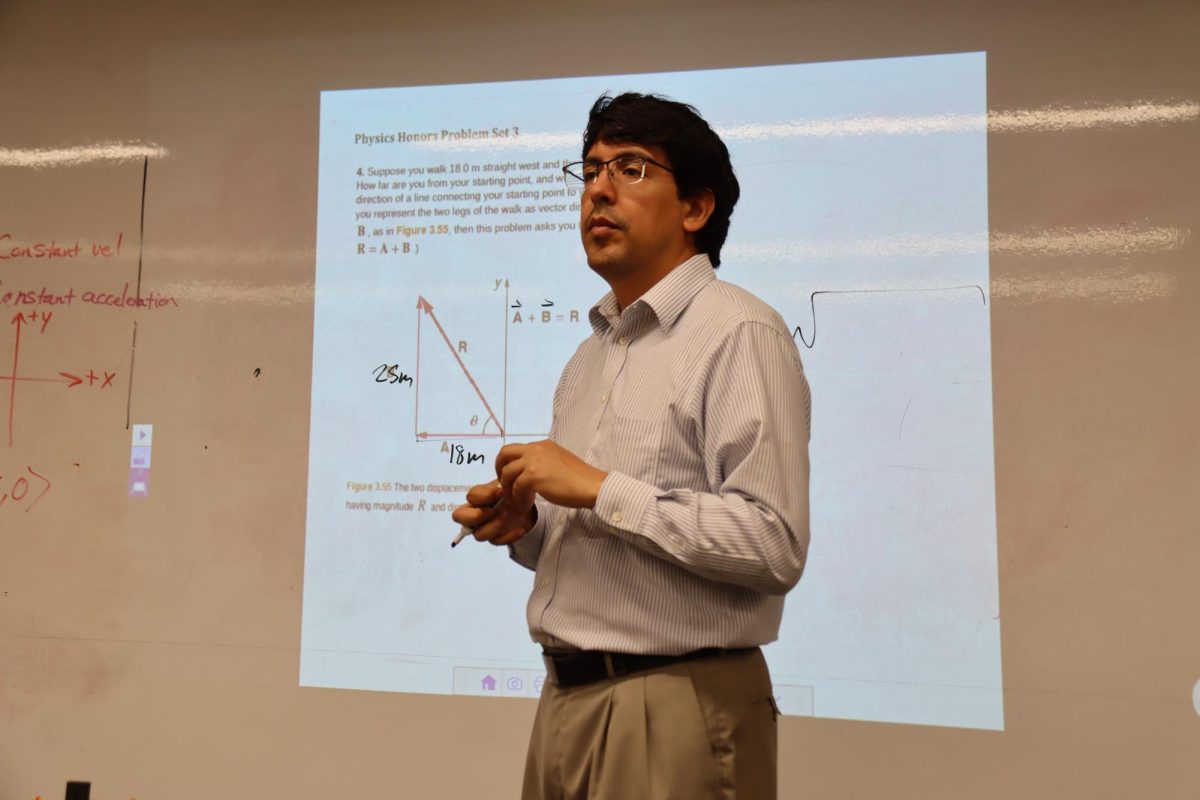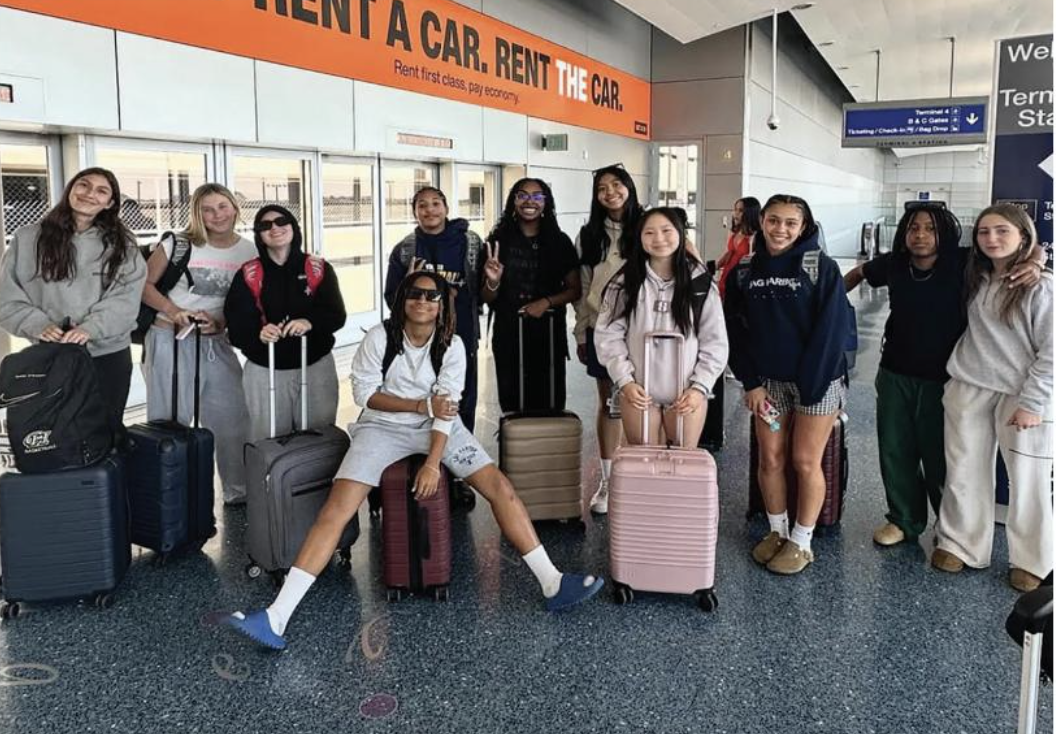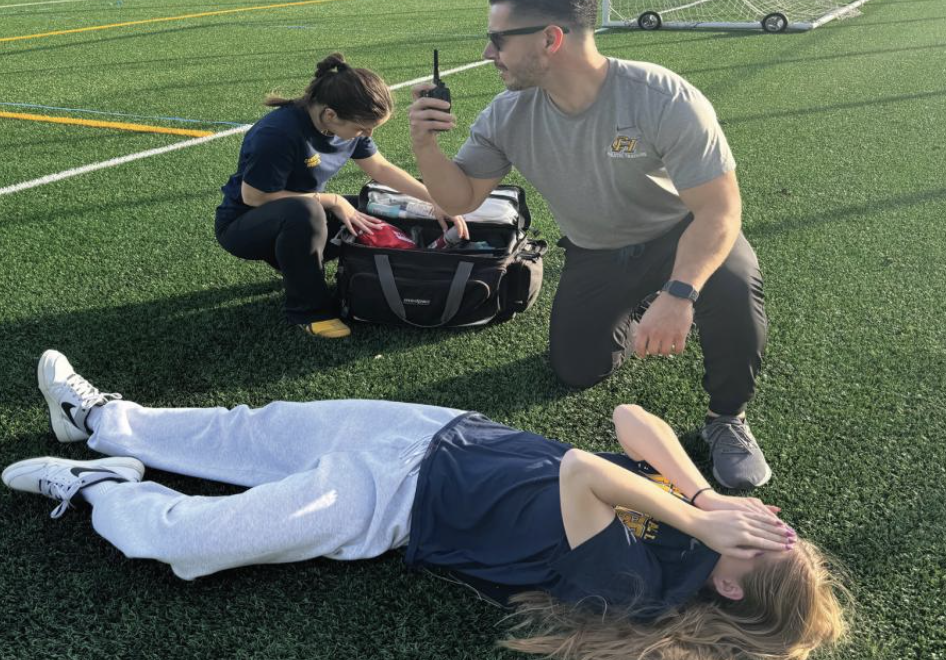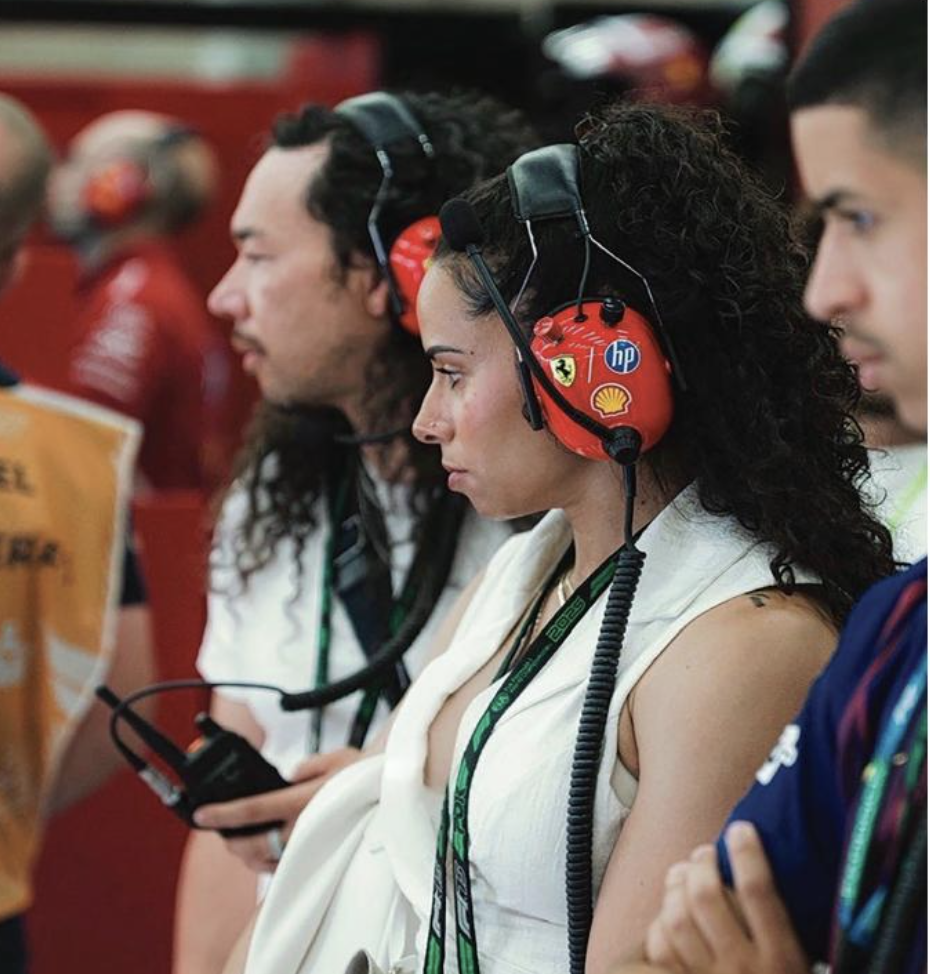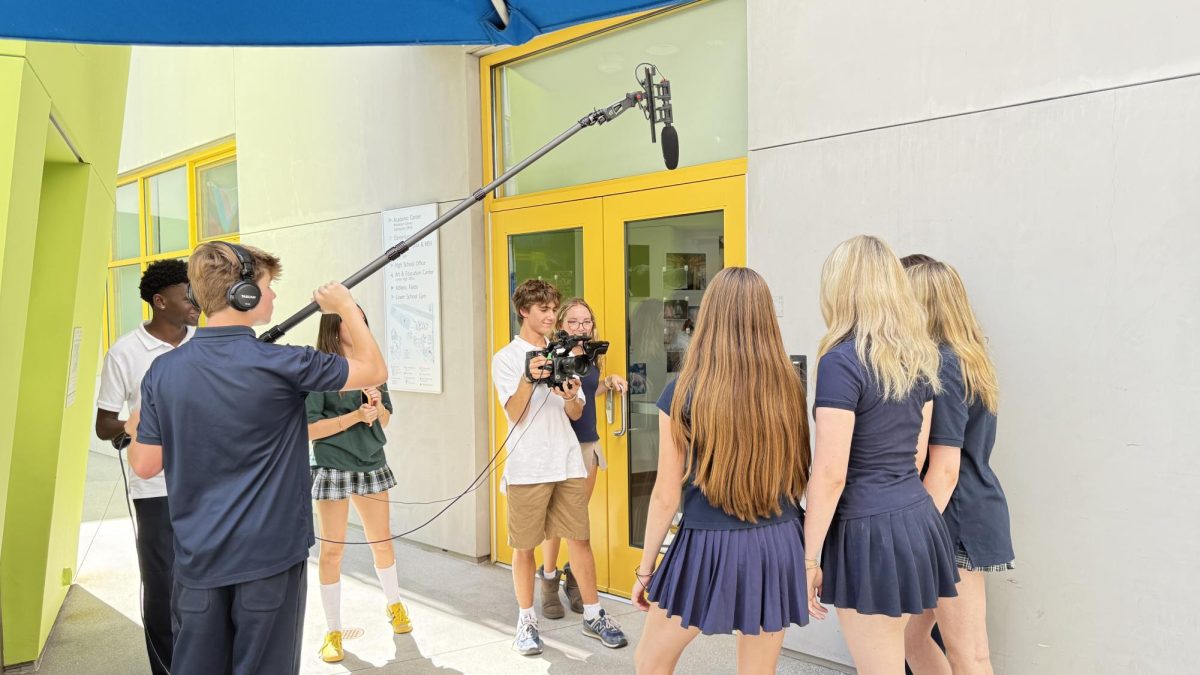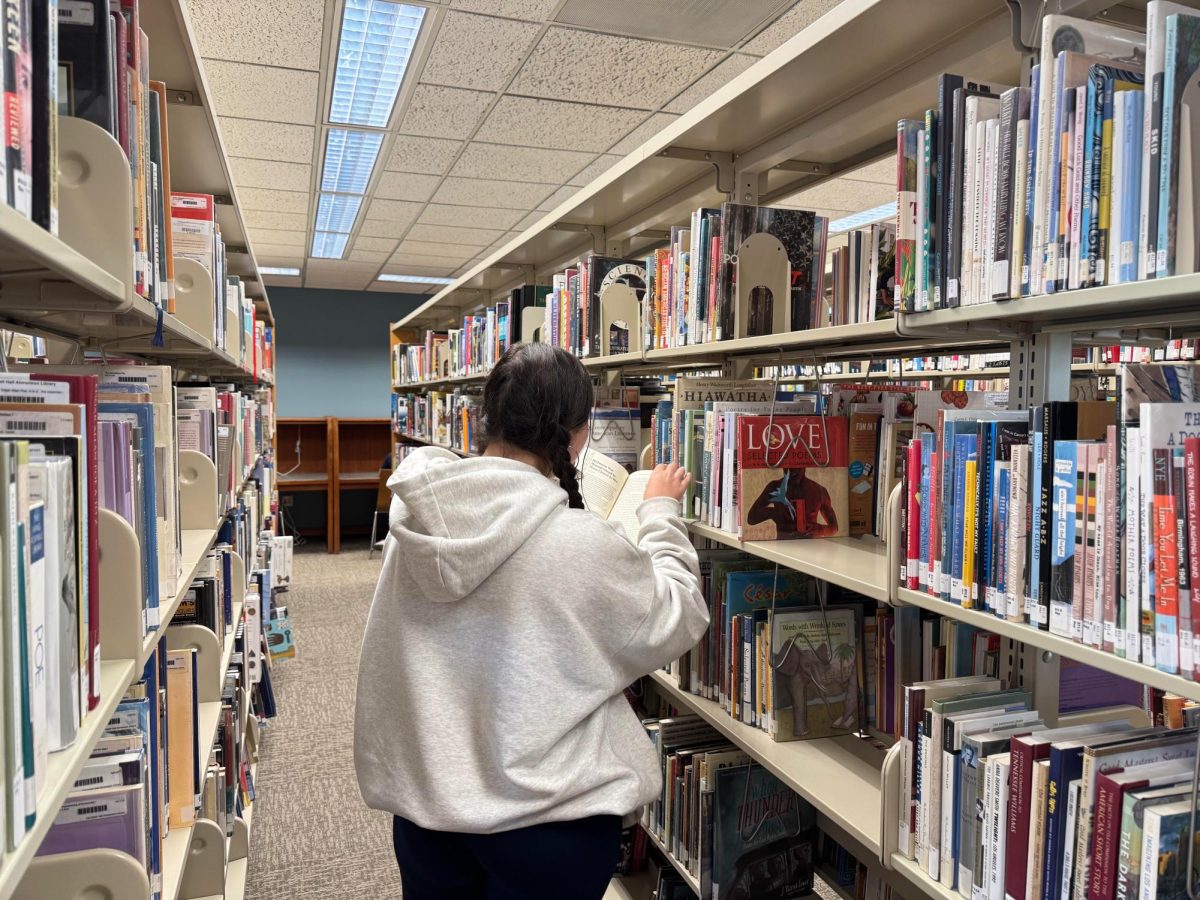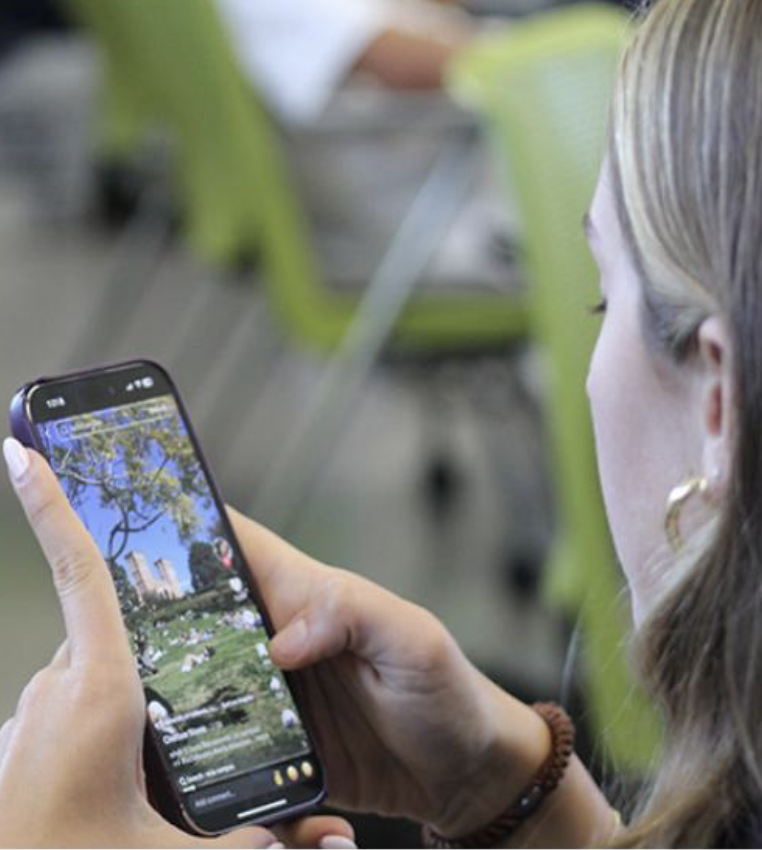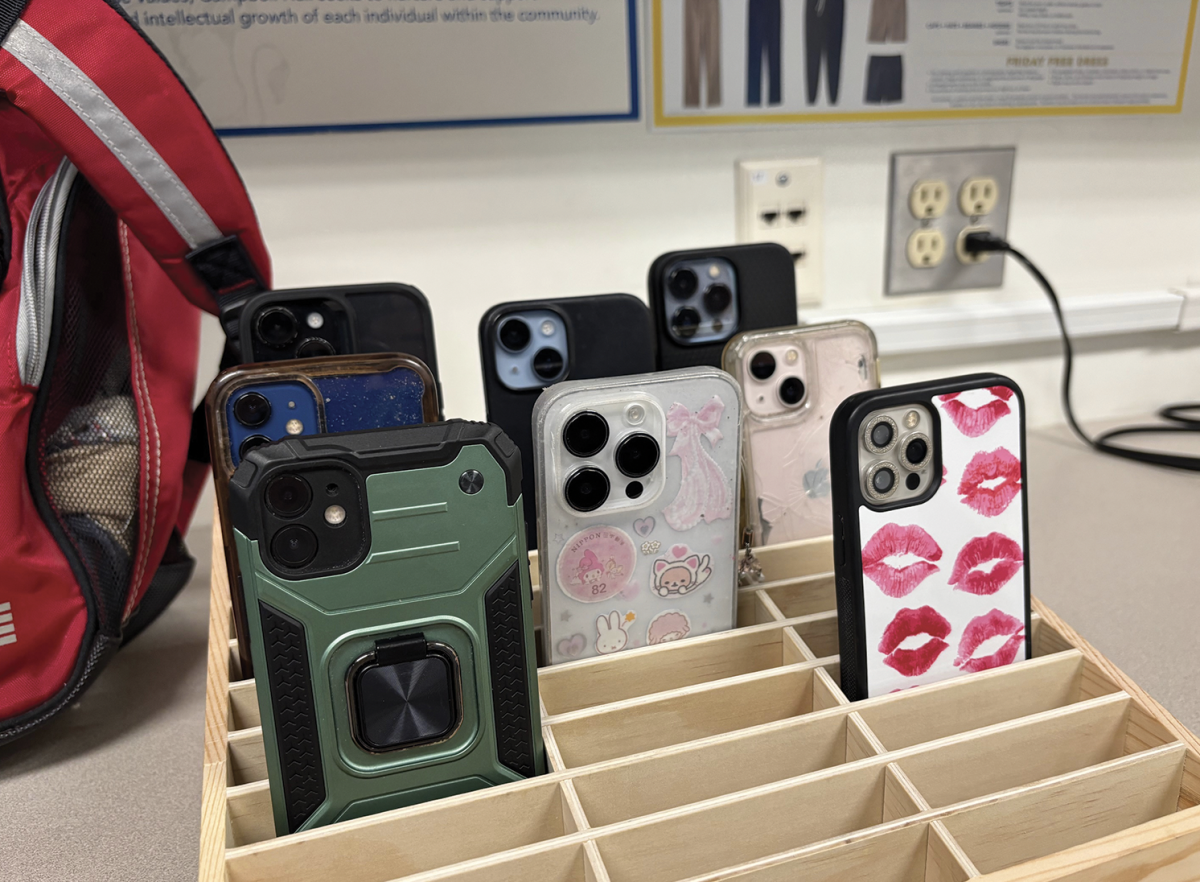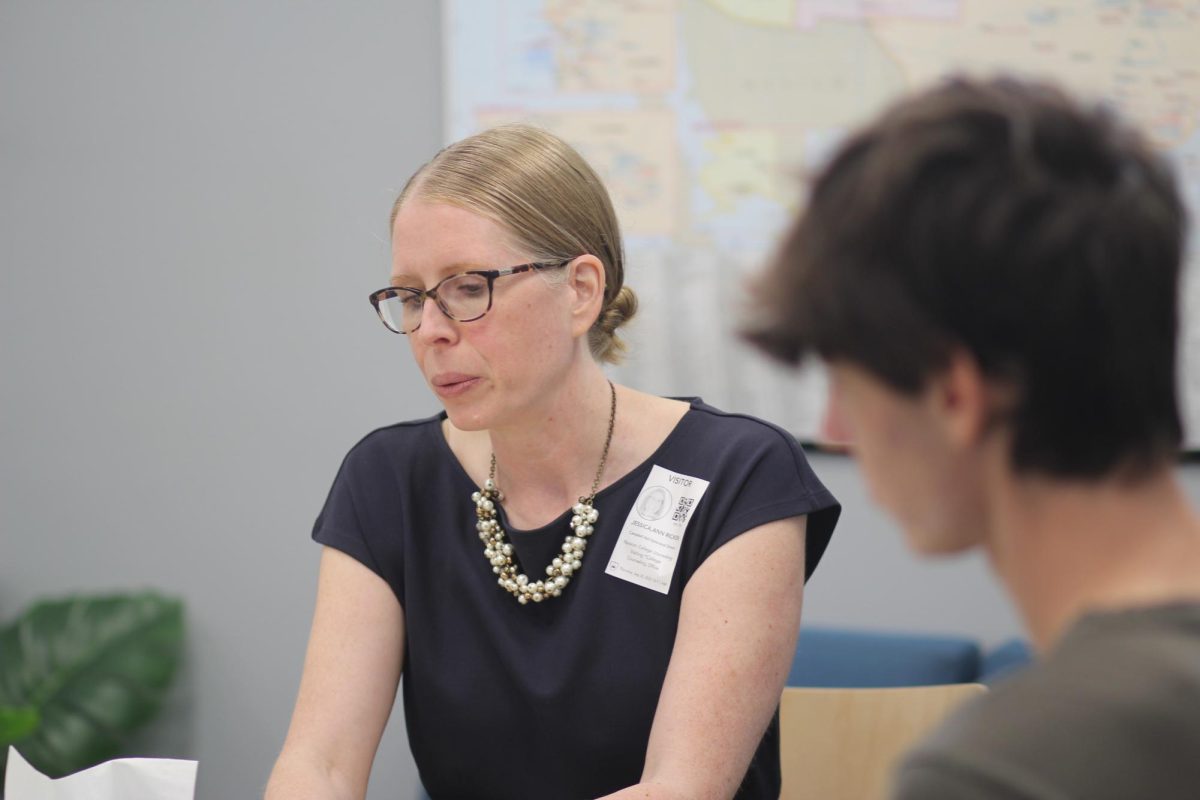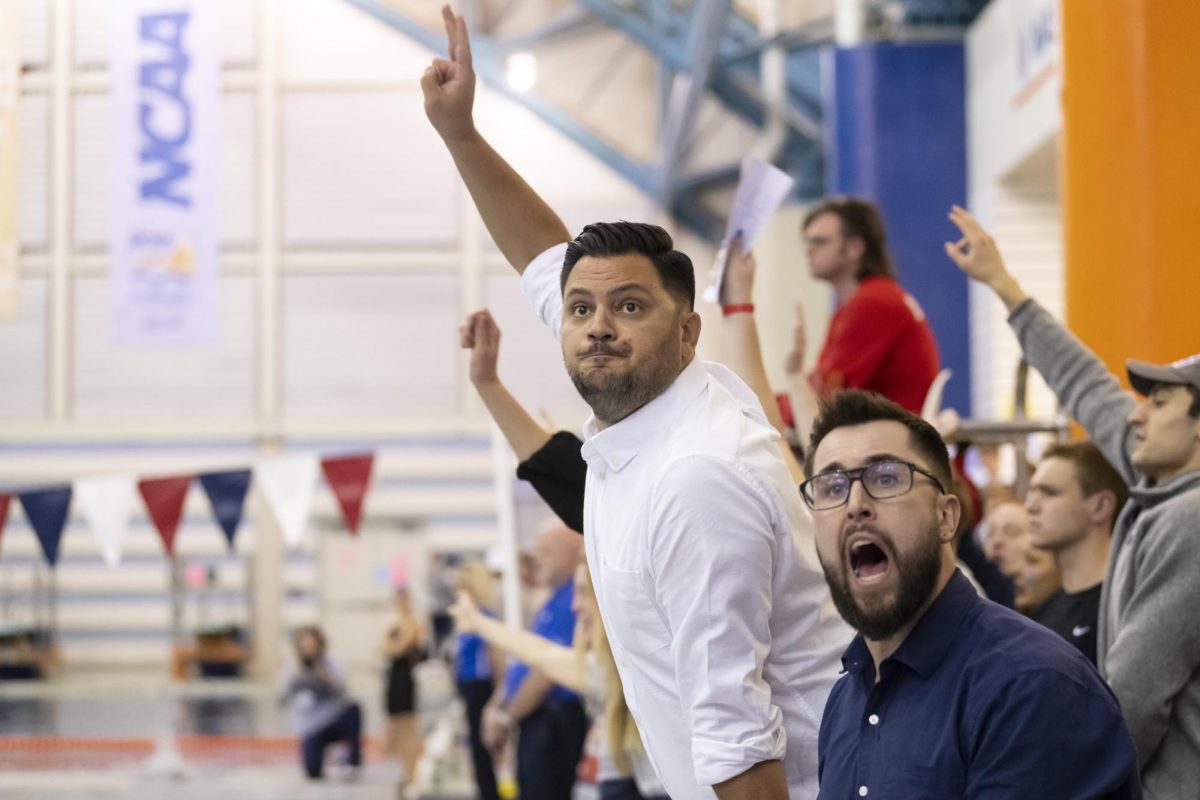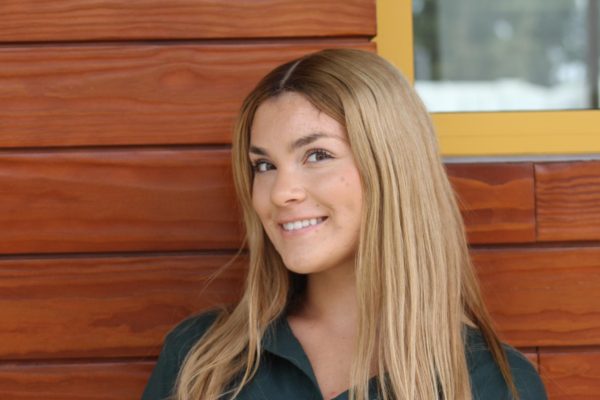In a September 2024 Pew Research Center article written by Jenn Hatfield, they found that 74% of teachers said that cell phone distraction is a major problem in the classroom. Many teachers at Campbell Hall agree with this statement. During the 2023-2024 school year, high school principal Shakirat Taylor visited classrooms to observe faculty members. However, as she immersed herself in the classroom environment, she noticed a large issue: not regarding the faculty members, but rather students and their disengagement from their phones. Taylor witnessed how the lack of restrictions around phones was causing a shortened attention span among students. Taylor felt there was a need for change.
Over the summer, Taylor held countless meetings searching for a solution, ensuring that all voices were being taken into account. Taylor familiarized herself with the harms of phones and social media by reading The Anxious Generation by Jonathan Haidt. This book inspired her to initiate change within the phone policy. After meeting with the student council, faculty, parents and principals of other independent schools, the consensus was made that phones would be permitted at Campbell Hall but with regulation.
“Cell phones are not going anywhere,” Taylor said. “They are here to stay and they are very much a part of our lives. How do we use them as a tool? You can teach someone to build a house with a hammer, but you can also teach them to break the house with a hammer. It’s how you use [the tool] that matters.”
Similarly to Taylor, student body president Whitney J. ‘25 felt there was a need for change. She too often witnessed her peers using their phones in chapel and class where, according to school rules, phones are not allowed. When Taylor approached Whitney and the rest of the student council, they worked together to find a solution that would best benefit students. Polls at the end of the 2023-2024 school year were sent out to the student body investigating how phones affect their learning environment. After data was collected, Taylor had many conversations with the student council to look at the benefits and disadvantages of phones in the classroom.
“[Ms. Taylor and the student council] had many open, long discussions about the pros and cons of banning phones from school,” Whitney said. “We ultimately decided that we wanted to keep phones in the school so students could have access to them. [However], we agreed that there was a problem with phones being used in class and attention and the focus of the community.”
After conversations with the student council, Taylor concluded that banning phones only fosters an environment where students want their phones more. Therefore, Taylor feels that students need to be taught the skill of self-regulating their phone use at school. One large flaw that Taylor noticed was an inconsistency of enforcement in the classroom. For example, some teachers would collect phones whereas others didn’t. This school year, Taylor, alongside High School Assistant Principal Dr. Rosa Dominguez and High School Academic Dean Heather Rios, periodically check classrooms to ensure that phones are being collected. With this enforcement, Taylor hopes to establish a mindful and healthy learning environment for all students.
“We hope that students [are] learning self management, resource management, [how to be] mindfully connected to what they’re learning and [how] to reduce some anxiety,” Taylor said. “Quite frankly, being on the phone too much and [being] over exposed to social media can begin to [impact] having a joyful [learning] experience.”
Whitney’s goal for the phones policy was to trust students with the responsibility of having their phones, but specifically removing them from the classroom to provide students with maximum focus and intense learning. Jones already sees success from the new policy as she has witnessed a shift in her and her peers’ engagement in the classroom.
“Sometimes, I put my phone in the box, and [when] I leave the classroom, I forget that [my phone is still] there,” Whitney said. “It’s happened to me multiple times, but it’s a sign that this policy is working. Some people I know have stopped bringing their phones to school entirely because the phone box was too much of a hassle.”
Taylor, whose goal is to best support students, is open to making changes to the policy in order to best benefit student learning. She encourages change and evolution of the policy in an attempt to foster the best learning environment possible.
“It may change,” Taylor said. It may shift, but [I know that] I want this. I want the change and the shift to happen based on the needs of the school, students [and] what is good for them, for the community.”


